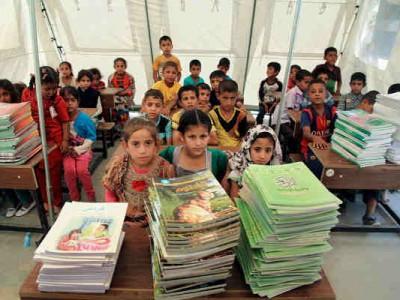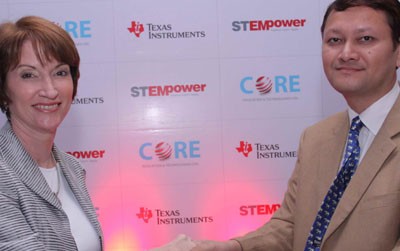
CEF Education Model to Produce Employable People
Constructive Education Framework (CEF) will work on the principle of “Learning for Earning” to meet the larger objective of building a prosperous society.
By Rakesh Raman
There is no denying the fact that institutional education in schools and colleges can help develop the personality of a child. However, a greater role of this education is to empower a student to get a respectable job in the market.
Alas, the education in India fails on both the fronts – it can’t develop the personality of a student and it can’t help them get a meaningful career.
This is evident from rampant corruption, increasing level of unemployment, and intellectual drought in the country. And it is further reflected in the worsening Human Development Index (HDI) of India.
Published by the United Nations Development Programme, HDI indicates the level of skills in a country and lets you know if people in that country are able to achieve their goals.
Unfortunately, India falls at No. 135 in the global list of countries ranked on the basis of their HDI. That means, despite all the loud claims by the Indian government about the education standards in the country, the education in India is not producing skilled workforce. The so-called educated people in India are not employable in any modern field. Worse, most of them are not even trainable.
[ You also can download the details of our KidComm Skills Development Program. ]
Consequently, out of nearly 500 million workers in India, over 94% work in unorganized sector as pushcart vendors, street hawkers, domestic servants, and so on. This means the education standards in India are so poor that they are not producing workforce employable for respectable jobs in the organized enterprises.
Plus, the Web is replete with facts and figures that reveal the irrelevance of Indian education systems and how they are wasting students’ time and parents’ money.
But can the education standards be improved in the country? It’s difficult but not impossible. A complete overhaul of the education ecosystem is required to pull off some positive and measurable results.
Here’s an attempt in this direction. RMN Foundation – the Corporate Social Responsibility (CSR) wing of the RMN Company – has developed an innovative education framework called “Constructive Education Framework (CEF).”
Although the focus of education under the Constructive Education Framework (CEF) will be to produce morally sound and honest people, it will work on the principle of “Learning for Earning” to meet the larger objective of building a prosperous society.
Here’s the outline of the education syllabus under our CEF methodology.
RMN Foundation Education Syllabus
Constructive Education Framework
Total 12 years of education with monthly tests and flexible duration.
[ Click here to download Constructive Education Framework ]
MODULE I
Age: 4 – 7 years or first 3 years (1 – 3) of education
(Six periods a day; Each period of 45-minute duration)
- Languages – Hindi and English – including reading, writing, speaking, listening, and discussion.
- Arithmetic – It is the branch of mathematics related to numerical calculations, such as addition, subtraction, multiplication, and division.
- Creative – Activities such as painting, music, acting, gardening, photography, etc.
- Entertainment – Stories, movies, animation (Once a week)
- Sports – Indoor as well as outdoor (Once a week)
- Lifestyle – Daily routine including health care, exercise, dress, cleanliness, behavior, and general awareness about services such as post office, banks, transport, etc. (Once a week)
MODULE II
Age: 8 – 10 years or next 3 years (4 – 6) of education
(Eight periods a day; Each period of 45-minute duration)
- Continuation of MODULE I
- Additional Subjects (Two additional periods – Total eight periods)
- Information Technology – Fundamentals of computers and communications
- Basic financial management, commerce, economics, marketing & sales, and introduction to ERP (Enterprise Resource Planning)
Module III
Age: 11 – 13 years or next 3 years (7- 9) of education
Eight hours of education every day (flexible time for each period)
- Custom education depending on the aptitude of the student in areas such as business, sports, culture, creative, etc.
- Required subjects from Module I and Module II
Module IV
Age: 14 – 16 years or next 3 years (10 – 12) of education
Ten hours of education every day (flexible time for each period)
- Business management, global trade practices, current affairs, advanced level of business communications, human resource management, political theory, models of governance, field interactions
- Required subjects from Module I, Module II, and Module III
After completing 12 years of education, select students will become part of the “enterprise clustering model” or ECM developed by the RMN Foundation. These students will work for 3 years under the ECM framework to learn all aspects of contemporary business management and economic development.
Currently, the above syllabus is designed for students in India. However, depending on the requirement, we can customize it for children in different countries.
By Rakesh Raman, the managing editor of RMN Company
You also can read: More Articles by the RMN Editor, Rakesh Raman




